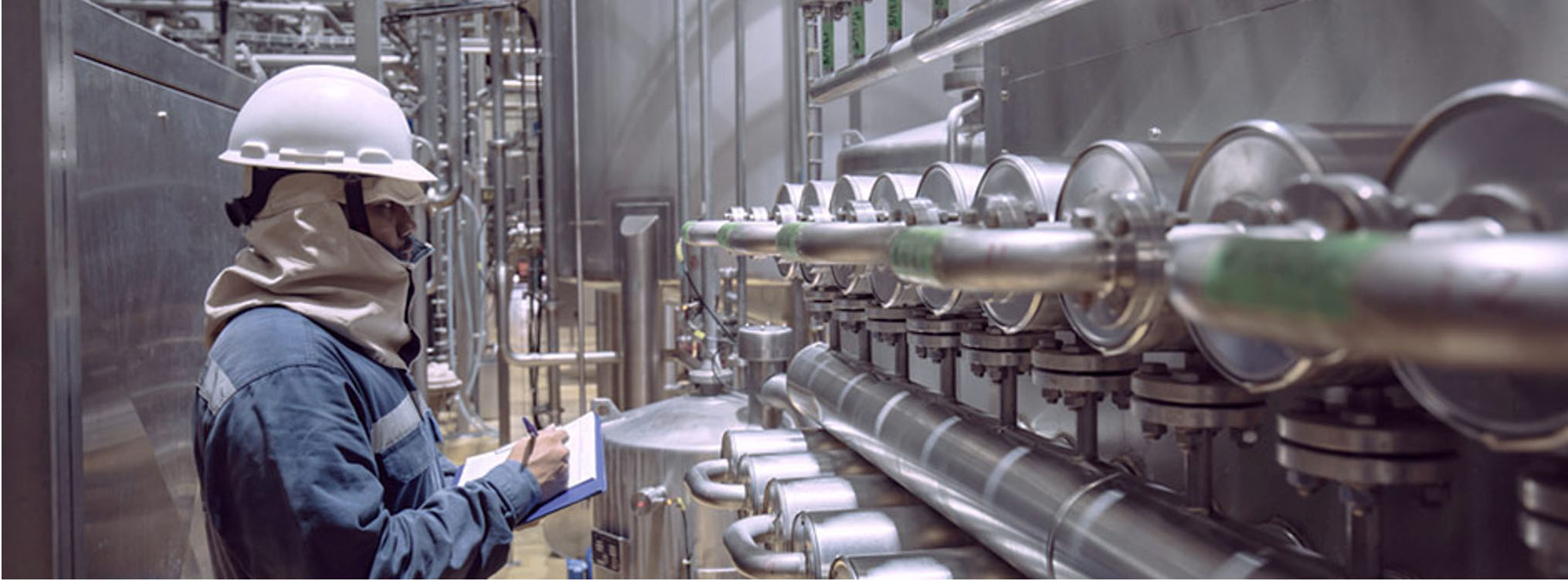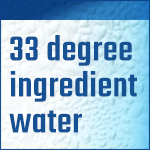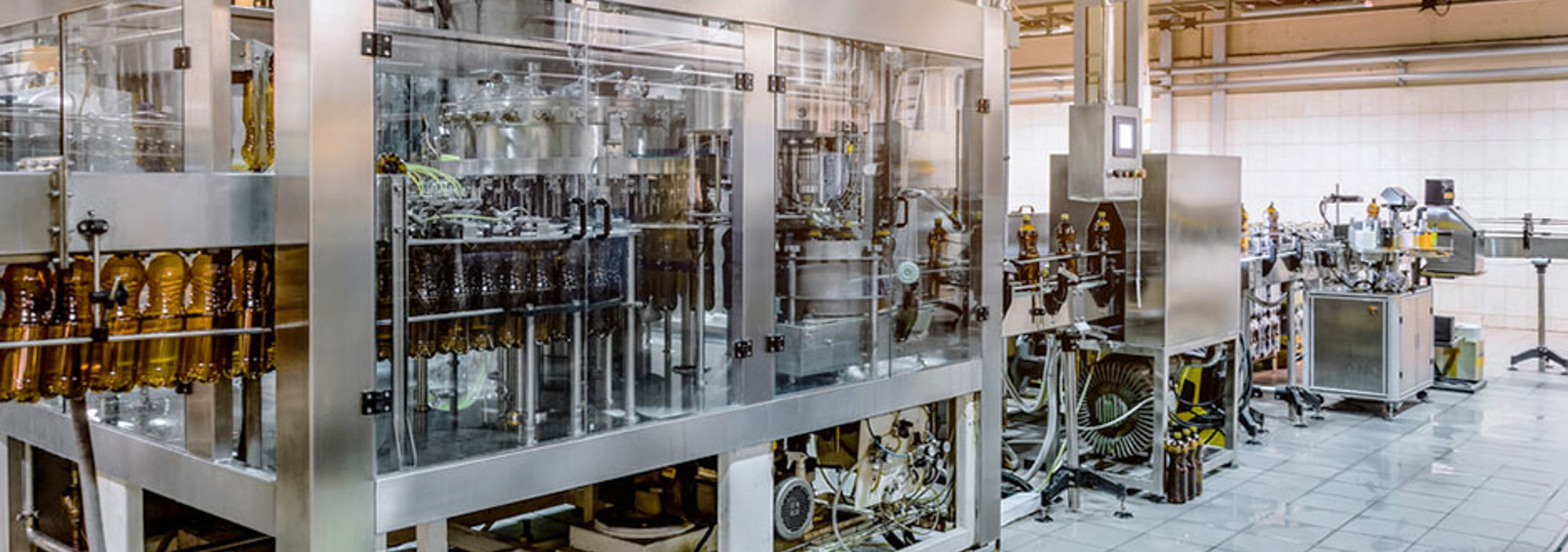FOOD & BEVERAGE INDUSTRY CHILLERS
Standard & Custom Water Chillers for Food Processing
Cold Shot Chillers® offers a variety of sizes and configurations to meet any budget and cooling demands for food process and bakery applications. For the best in industrial water or industrial air-cooled chillers for your commercial bakeries and more, please complete our food and beverage questionnaire form.

We specialize in designing and manufacturing chillers for the food and beverage industry. Water chillers for food processing are among the most used chilling systems for food and beverage producers and distributors. Food processing chillers use a heat exchanger to help cool heat-producing process elements. An air-cooled chiller system or water-cooled chiller unit can be used to expel process heat, depending on the needs of your application.

Chillers for Food & Beverage Industry Applications
Manufacturing and storage processes in the food and beverage industry increasingly require low temperatures. Reliable cooling equipment (or chillers) can adequately offer and maintain such temperature range through precise temperature control. Finding the ideal cooling solution to extract unwanted heat in several applications is key to minimizing downtime, maximizing cycle time, and manufacturing top-quality products in the industry. Explore the roles of relevant chillers in the food and beverage industry below.
Bakery Chillers

Bakery chiller systems let you maintain optimal product temperatures so that you can make consistent batches of dough. Using a commercial water chiller for bakery applications has become incredibly important in the restaurant and food production industry. Consistent dough production is one of the main hurdles to scaling a restaurant chain or mass-producing a quality baked good.
Our commercial chillers are used in the bakery industry for several applications:
- Cool high-speed mixers. The chilled fluid is pumped through a jacketed portion of the mixer base to cool the flour mixture during the blending process.
- Cool frosting and fillings. The product is heated and blended in a jacketed tank. A chiller removes the heat from the tank to decrease the product temperatures so they can be used in the final bakery product.
- Chill water for dough mixing applications. The chiller is combined with a Cold Shot temperature control unit to chill water.
Using a Cold Shot Chillers® water chiller for bakery and food production applications lets you maintain a temperature of around 33℉. This temperature has been shown to facilitate a stable environment for controlling yeast growth in the dough batching process.
Batch Cooling for Your Bakery Water Chillers
Because the water temperature is critical for a consistent dough batching process, our chillers use tanks that provide a buffer in the cooling process. This means that your custom bakery chiller produces potable water with a steady internal temperature to minimize any inconsistencies in yeast growth.
Brewery & Microbrewery Chillers
The most effective way to maintain stable process temperatures inside a brewing unit is to utilize brewery chillers, typically glycol chillers. Click here to learn more about our Standard Flow Air Cooled Portable Chillers for breweries.
What Is a Glycol Chiller?
Brewery glycol chillers are cooling units that utilize propylene glycol (an organic anti-freeze agent) or a mix of propylene glycol and water to extract excess heat from a brewing process and dissipate it in a heat exchanger or refrigeration system. Brewery glycol chillers provide the close temperature tolerance necessary to produce the highest quality final products.
Applications for Chillers in Breweries
Glycol chillers are suitable for specific chilling applications within the brewery industry. Some typical examples include:
- Wort
- Brite tanks
- Fermenters
- Two-stage heat exchangers
Some examples of the industry-specific chillers we offer are:
- Brewing Counterflow Chiller
- Nano Brewery Chiller
- Brew House Chiller
How Do Glycol Chillers Work?
glycol chiller for brewery systems circulates supercooled glycol around a closed circuit. This closed loop is comprised of tubing that connects to the input and output sections of the chiller unit and the heat exchanger. To cool the wort, the glycol circulates through the heat exchanger, cooling the vessel.
Winery Chillers
Learn more about Winery Chillers
Producing wines over or below the recommended fermentation temperatures can drastically impact the quality of the final products. Moreover, wine fermentation is an exothermic process – it generates heat. This implies that the process can still exceed the ideal temperature range even with the appropriate room temperature. Thus, at all times, adequate temperature control must be ensured in winemaking vessels.
Ideal Fermentation Temperatures for Wines
For the best color and tannin extraction, wine fermentation must be held within precise temperatures. For white wines, 45 – 60°F (7 – 16°C) is ideal for preserving the fruity aroma and taste, while excellent red wines are produced within 70 – 85°F (20 – 30°C).
What Are Winery Chillers?
Like brewery chillers, industrial winery chillers are low-temperature chillers suited for mid to low-temperature operation (between 40°F and 20°F). The most common types for wineries are known as glycol chillers. Propylene glycol is an anti-freeze agent capable of chilling products to very low temperatures.
How Do Winery Chillers Work?
Winery glycol chillers consist of closed-loop tubing attached to the heat exchanger of a winemaking vessel. Glycol, or a mixture of water and glycol (some wineries use a water/glycol ratio of 67% to 33%), flows through the circuit and cools the vessel by extracting heat from the heat exchanger. Our 2-ton air-cooled chiller is adequate for most winery applications.
Distillery Chillers
A key component for producing top-notch products in distilleries is temperature control. Customers require chillers that match their requirements to achieve exceptional results. Customers can customize distillery chillers and use them to achieve several goals depending on the type and size of their distillery. In line with conventional chiller principles, this distillery glycol chiller leverages heat exchangers and a water-glycol solution circulation throughout the equipment to lower machinery and product temperatures.
Why Distillery Equipment Requires Cooling
The quality of products in distilleries is temperature-intensive, i.e., adequately manufacturing products depends on specific temperature ranges. Producing any quality of alcohol requires manufacturers to maintain precise temperature ranges. The production process includes wort boiling, cooling, and alcohol fermentation. This fermentation cannot commence unless the boiled wort temperature reduces to the ideal range. Allowing natural cooling can take hours or even days, minimizing process efficiency. Thus, distillery chillers can expedite this process, allowing for the production of multiple batches daily. Moreover, these chillers ensure temperature consistency during fermentation, significantly impacting the final product flavor.
Chillers for Frozen Dessert and Yogurt Machinesillers
Learn more about Chillers for Frozen Dessert and Yogurt Machines
Cold Shot Chillers® manufactures a full line of commercial yogurt machine chillers for self-serve frozen yogurt shops. We take tremendous pride in creating top-quality closed-loop water cooling systems for ice cream machines and froyo machines that are custom-designed to fit the unique needs of our clients.
Basics of Our Glycol System for Ice Cream and Frozen Yogurt Machines
Our industrial chillers are configured in both air-cooled or water-cooled formats depending on the unique needs of your self-serve frozen yogurt shop. For both chiller variants, a water/glycol solution is sent to your product tanks, where it absorbs heat from the process. Then, the heated glycol solution is ushered away from the cool ice cream or yogurt to a heat exchanger.
If you’re using air-cooled chillers as your glycol cooling system for ice cream and frozen yogurt production, then the fluid lines will take the heated glycol to an outdoor heat exchanger where an air condenser expels the heat and send cool fluid back to your process.
If you’re using water-cooled chiller units as your glycol system for ice cream or froyo, the coolant is sent to a nearby heat exchanger, transferring heat to another closed-loop water cycle. Then, the second set of water lines is circulated to an outdoor cooling tower where the fluid is cooled and sent back to the heat exchanger to continue circulating process heat outdoors.
Your water-cooled soft serve machine can leverage a Cold Shot Chiller that features a full chiller refrigerant charge of R-410A, hermetic scroll compressors, an air-cooled condenser, and a weather-resistant microprocessor control center that is mounted on a formed-steel base.
Benefits of Soft Serve Chillers from Cold Shot
Chillers expel the heat from your process by absorbing it at the source and sending it outdoors. Your competitors that don’t use glycol cooling systems for their soft serve production and storage rely on their store’s air conditioning to cool the back room (and the front).
In addition, our chillers are closed-loop cooling systems, meaning you don’t have to rely on a seemingly endless supply of city water to cool your process. Cold Shot Chillers® cycles the same refrigerant through our cooling loop to reduce waste and keep your water bill to a minimum.
Lastly, our chillers require less space in your production area since no supply lines or drains must be integrated. Our closed-loop glycol cooling systems for your ice cream and frozen yogurt machines give you the freedom to organize your soft serve barrels in a way that is convenient for your team.
Chillers for Ice-Making Equipment
The food and beverage industry also requires ice-making equipment to meet customer requirements. This equipment commonly leverages chillers to produce ice for various applications. In addition to finding this equipment in freezers, they come as stand-alone appliances, especially for industrial applications that require large-scale ice-making. For example, ice from industrial ice-making equipment is ideal for cooling and preserving fish and other sea products. Moreover, the equipment is essential for storing and transporting meat, vegetable, and fruit.
How to Improve Ice Maker Capacity with Chillers
A water chiller for ice machines is ideal in commercial kitchens with high room temperatures and hot incoming water suppliers, which can adversely impact the productivity of ice makers. Ice-making equipment can achieve optimized production with chillers that can lower inflow water temperature. Chillers can also maintain a constant water temperature range down to +1/8°F to ensure the maximum performance of ice-making equipment. It remains commonplace that the colder the water flowing into an ice maker, the greater the ice production volume. Thus, ice makers must incorporate chillers into their ice-making equipment to boost their capacity.
Lyophilizer Chillers
Lyophilizer chillers (or freeze dryers) are essential for the long-term cooling and preservation of food products, such as coffee, ice cream, baby formula, herbs, eggs, fish, mushrooms, and meat. These chillers help cut down on waste and preserve several types of food items for sale to the public or reuse. Lyophilizer chillers eliminate the moisture content of frozen samples and achieve significant dehydration that leads to their sublimation or lyophilization. Freeze dryers can reach temperatures as low as -86°C, making them essential for preservation in the food and beverage industry.
Chillers Designed for Freeze Drying Processes
Chillers designed for freeze-drying processes include four key components: the refrigeration compressor, condenser, evaporator, and expansion valve. These components form a closed system interconnected by pipes through which a refrigerant continuously circulates, changes state, and exchanges heat. Lyophilizer chillers leverage this refrigeration cycle to achieve ultra-low temperatures ideal for relevant industrial applications.
Food Packaging Chillers
Food packaging chillers leverage indirect cooling through a heat exchanger that allows cold water/propylene glycol to flow from one side and the product to cool on the other. The heat exchanger commonly comes in a cooling jacket tank, tube in tube, or plate and frame forms. Food packaging chillers can efficiently maintain temperatures ideal for stationary storage, packaging, and processing. With these chillers, manufacturers can achieve maximum productivity due to high-performance cooling at reduced costs and with minimal environmental impacts.
The Importance of Chillers for Food Packaging Equipment
Food packaging machine chillers play crucial roles in the entire food packaging process. These equipment are necessary for cooling blow molding machines, actuators, film lines, and cutting stations in blister packaging and film converting machines. These machines and parts work better are lower temperatures. For instance, since blow molding machines are energy intensive, they require additional cooling to shorten mold cycles, minimize energy consumption, and improve the quality of food packaging. Similarly, chillers ensure optimized efficiency for cutting stations, film lines, actuators, and other relevant food packaging machinery.

Offering the Best in Customer Service
For over 30 years, customers in the food and beverage industry have been turning to us whenever they need custom-built chiller cooling systems at competitive prices. And now, we’d love to help you meet your cooling needs.
Build times for our food processing cooling units vary based on the capacity you require:
- 2 Ton – 20 Ton Units take 3 to 4 weeks after receipt of order (ARO)
- 25 Ton – 40 Ton Units take 4 to 6 weeks after receipt of order (ARO)
- 50 Ton – 100 Ton Units take 10 – 12 weeks after receipt of order (ARO)
Cold Shot Chillers® offers competitive warranties, 24-hour technical support, and even same-day quotes. In addition, we implement a “one ring only” policy so that your technical needs or first-time inquiries are never left hanging.
Cold Shot Chillers Designed for Food and Beverage Industry
Food and beverage processing chillers are priced by their tonnage; thus, the price of your required unit depends on the cooling capacity that your process requires. Use our chiller cooling capacity calculator to find the tonnage that best suits your unique operations.
Whether you need custom food processing cooling systems or a more standard configuration, our engineers can provide guidance. We can design and manufacture custom chillers that meet the exact industry standards you require. In addition, our team can draft installation plans whether you’re replacing an old food processing cooling unit or are acquiring one for the first time.
Request a quote or more information from a Cold Shot rep today!
Request a Quote
Request a Quote (Footer Form)
Request a Quote
